Bill Black pt 4/9 – The Best Way to Rob a Bank is To Own One
The weakness of regulations and resources to enforce accountability on the finance sector is by design. Regulators’ budgets have been gutted, and even weak laws made unenforceable. Unless individual bankers go to jail when they commit fraud, nothing will change. Bill Black on theAnalysis.news with Paul Jay.
TRANSCRIPT
Paul Jay
Hi, I’m Paul Jay. Welcome to theAnalysis.news. One more time, please don’t forget the donate button at the top of the webpage. If you’re watching on YouTube, come on over and donate at theAnalysis.news. Hit the subscribe button. Share it, the number one comment on YouTube is why aren’t more people watching? A lot of people are watching, but we’d like a lot more, and if you share it, people will.
This is part four of my series of interviews with Bill Black on what he calls control fraud. So please watch the earlier parts because again, we’re just going to pick up where we left off and it will make more sense if you watch the previous ones first on theAnalysis, it’s all on one page and on YouTube. Come to the YouTube, theAnalysis channel, and there’ll be a playlist where all of this will be easy to find.
So again, the docuseries titled ‘The Con’ breaks down a lot of what happened during the financial crisis of 07/08, and here’s another trailer from the film.
TRAILER EXCERPT
“So what we discovered in the saving and loans crisis, was that fish rot from the head. When the CEO is the crook, of a seemingly legitimate organization they can cause vastly greater losses and damage. Precisely because of that seeming legitimacy. In finance the weapon of choice is accounting. What we discovered in the savings and loans crisis was that there was a recipe – and the recipe has four ingredients. One grow like crazy, two by making really crappy loans, three while employing extreme leverage (and that means a whole lot of debt compared to equity), and four while setting aside only trivial reserves for the inevitable losses that you are going to have.
If you follow this recipe it produces three sure things. One the bank, the lender, will report record profits. They’ll be fictional, but they’ll report record profits. Two under modern executive compensation, the CEO and the other senior folks, will promptly be made wealthy. Three, down the road you will have catastrophic losses from all of this. Because as you think about it, that same recipe is a fabulous way of producing massive losses. If a bunch of lenders do the same strategy, it is also the optimal way to hyper-inflate a bubble. Because after all, what do you do as the bubble gets worse and worse? [SMACK]. First ingredient, grow like crazy. And that makes the bubble get bigger and bigger and bigger. But it does something else, and in the trade we call this, this is not something we invented as regulators, this is what the industry says ‘a rolling loan gathers no loss’ and to role a loan is to refinance it. So as long as there is a bubble, and housing prices are inflating … if I make a loan to someone who can’t repay it. I just make them a bigger loan. They can use the proceeds of that loan to pay off the last one. As long as the bubble is hyper-inflating, this works. Which is why once the bubble stops inflating, you get this massive collapse, in these circumstances.
So, it’s really easy. In fact, Jamie Dimon of all people, the head of JP Morgan, has put in a letter to his shareholders the fraud recipe. Now, he phrases it very slightly differently. He says that ‘its easy to create low-quality profits today, and disastrous losses tomorrow- by having lousy underwriting’.
So this is the couple of key things, that are really not obvious to big parts of the world. It’s indeed famously one of the most important non-prosecutors in the current crisis refuses to prosecute any of the senior officers who’s in charge of the JP Morgan case. Right, refuse to indite any of them. Even though he has a whistleblower, who gave them the case on a platinum platter. Because he said ‘It doesn’t make any sense to me. Banks lose money when they make bad loans. Why would they hurt themselves?’. And of course, he’s confused his pronouns. By they he means the CEO. And who do they loot? They loot the bank. Those are not the same people. The best way to get rich, the title of my book, the best way to rob a bank is to own one.”
Paul Jay
Now, again, joining us to discuss the history and present state of control fraud is Bill Black, who is in the film The CoN. He was an adviser to its producers. Bill is an American lawyer and academic and author, and he wrote the book, The Best Way to Rob a Bank is to Own One. He’s also an associate professor at the University of Missouri, Kansas City, and specializes in economics and law. He’s the author of the book The Best Way to Rob a Bank is to Own One. If you’ve been watching this series, you’ll understand just how profound a statement that is. Thanks for joining us again, Bill.
Bill Black
Thank you.
Paul Jay
All right. So we left off with [Roland] Arnall, the guy who helped construct Ameriquest’s massive fraud scheme. As you said, Ameriquest becomes the largest mortgage fraud company in the world. He gets punished by becoming the ambassador to the Netherlands, which is obviously a suitable punishment, rather than going to prison, which seems to be the kind of punishment these executives seem to get. All right. So pick up the story from where we left off.
Bill Black
This was the easiest crisis ever to prevent. When it was completely novel in 1990. We’d never seen it before, the examiners immediately got it right. But by 1994, we’ve got a whole trail of dead places from this fraud and predation and lots of examples, and then every year afterwards, it just becomes more and more blatant. Then we get the three greatest warnings in history about this disaster.
So when people say no one could see this coming, What are you talking about?
So let me tell you, the first one. The first one actually begins in 1998. Now, of course, you could say it began in 1990 when our examiners did it, but in 1998, the appraisal professional associations and their rivals began to meet together to try to develop a common response to this extortion of appraisers to inflate appraised values on homes.
Paul Jay
Let me just jump in here really fast in case there’s somebody watching that didn’t watch the earlier parts. The focus is on the bankers getting great fees for pushing appraisers to over-appraise houses, even though it hurt the interests of their own banks. That didn’t matter because they’re getting fees. OK, go on.
Bill Black
Ok, 1998 is a friggin long time ago. It’s in the Clinton administration. It’s 10 years before and the appraisers are sounding the perfect warning. First, extorting appraisers in itself is a federal felony. So it’s not just a warning of looting, it in itself is a crime wave. Second, no honest lender would ever inflate or allow anybody else to inflate the appraisal. Because it’s your great protection against loss. I, back in the day in the savings and loan debacle, was one of the principal trainers of the FBI agents and assistant U.S. attorneys who were investigating and prosecuting and getting over a thousand felony convictions of these folks.
So what did we do? We explained how an honest bank worked. Why there were some things that only a fraudulent banker would do, and because I was then a federal employee, I was a free expert witness, no fees. You’re a federal employee. So you can imagine they like putting you on the stand as a prosecutor, and I would explain to jurors, and within 15 seconds, every juror would be turning and looking at each other and nodding. This is something really understandable, and when we prosecute, we want understandable stuff, not super-complex finance stuff. We want things that people can understand and go, yeah, that’s right. They’d be stupid. You’d lose money. Nobody honest sets it up, so you lose money as a lender. No lender would do that. That’s crazy, but hey, it also makes sense to do it if it is a fraud. Well, guess what? It must be a fraud. That’s really how easy it is. OK, so it’s in itself a felony, but it’s also the leading indicator of a much bigger felony, the looting strategy, and that’s what we want as regulators, leading indicators that tell us years in advance before the collapse, this place is a fraud and we make them our top priority to close in those circumstances.
None of this happens anymore. None of this has happened for 25 years. Our meeting with the senators was 1987, the five senators that tried to hammer us, that’s a long time ago where all of this stuff gets forgotten. OK, but the honest appraisers do some other things because they’re smart. First, they make it a uniform position that takes them two years to hammer out, but every federal banking regulatory agency has a chief appraiser, and all of those chief appraisers would have known no later at the absolute latest in 1998 that there was a national epidemic, and that it was led not by borrowers, but by lenders and their agents, the loan brokers. To ensure that the loan brokers reached this uniform position in the year 2000 and went online with an online petition that eventually had eleven thousand signatories.
Paul Jay
Of appraisers?
Bill Black
Of appraisers, which they stopped and said, if eleven thousand of us won’t convince you, clearly, numbers don’t help. So we’re just going to stop the sign-up process. This adds huge credibility because remember, the people who get punished are the honest appraisers. They get blackballed and their businesses destroyed in many cases.
Paul Jay
By the banks.
Bill Black
By the banks, creating what we call in economics and criminology a Gresham’s Dynamic. A Gresham’s dynamic is when you gain a competitive advantage by cheating. When that happens, market forces become totally perverse and bad ethics drives good ethics out of the marketplace. So I would explain to juries Gresham’s dynamic as well and how you can suborn appraisers, accountants, credit rating agencies, attorneys, by using this power of the purse of perverse market forces, and that the art was not to destroy or defeat these people who are supposed to serve as controls against abuse, but to suborn them, to turn them into your most valuable fraud allies, to use their very reputation, to age your fraud instead of prevent your fraud. So when these appraisers signed this petition, they identified themselves, deliberately gave identifiable information, knowing that they were risking their livelihoods. So this was a super credible process by experts and then they didn’t just send it out, they sent it to all the top people and they sought media attention. They sought congressional attention. They went to the legislature and warned them. So this idea that nobody knew and nobody warned that is not simply a lie, it’s an offensive lie, that really gets in the way of the courage of the appraisers. By the way, the appraisers were essentially our only ally as effective regulators in the savings and loan debacle. So I’ve given lots of praise to our examiners who do the actual checks of underwriting. Let me also praise these appraisers for their courage.
In September 2004, the next great warning comes and it’s the FBI, the premier law enforcement entity in the world. You can debate, but that’s how conservatives certainly would have pictured it in this era.
In September 2004, Chris Swecker, not a random person, the senior FBI person in charge of dealing with mortgage fraud. Think of this for language. Used the phrase that there was a developing “epidemic” of mortgage fraud and predicted explicitly that it would cause a financial “crisis” if it was not prevented.
Paul Jay
What year?
Bill Black
September 2004. That’s full four years before, but here’s the kicker, and The Con reveals this for the first time. In fact, it was fascinating, I wasn’t in on this phone call, but I’ve talked to the producers of The Con directly.
Patrick (Patrick Lovell, producer of The Con) calls Chris Swecker and Chris Swecker says, I’ve been waiting for this call for six years. So nobody had bothered, even though they had done this, and so I’ll just give two of the takeaways. He was asked, and you can see it in The Con, how many regulators got in touch with you? You just warned that there’s going to be a financial crisis because of an epidemic of fraud. Zero. Not a single one contacted. There were no regulators, there were anti-regulators.
Paul Jay
And also it wasn’t like he was telling them something they didn’t know. They just didn’t want to regulate.
Bill Black
I think you’re understating the power of denial. Let me come back to that in the context of the Fed, where we have some evidence of all that and the FDIC. Believe me, it’s not a defense of the people, but it’s a richer tale, and again, that’s what The Con does. It’s not a comic book version. It really goes through what happened for the first time in any documentary.
The second big takeaway. Chris Swecker, remember, our little agency in the savings and loan debacle, which was this big compared to the great financial crisis, which was this big. Massively greater. We made more than thirty thousand criminal referrals. He was asked how many criminal referrals, the banking regulatory agencies, and that would include the savings and loan OTS in that era. How many criminal referrals they made with regard to the great financial crisis, and the answer is six. The criminal referral process was destroyed and there’s no evidence in the written record that I’ve been able to find of any order to eliminate it. It just faded to black in cinematography terms.
There used to be, in every significant office, a criminal referral coordinator. They eliminated those folks, you can see that gets taken out of the literature in around 2000ish.
Paul Jay
So the fade to black is by design. They start under-funding agencies.
Bill Black
Oh, they didn’t underfund. I mean, underfund is such an unduly modest term. They absolutely gutted and that’s where I was going to say. We have some fairly detailed stuff about the FDIC and the Fed and The Con does some of this, but also the Financial Crisis Inquiry Commission did some of this. At the Fed, the key strategy by Greenspan was to prevent the Fed from getting information. So it’s hard to know exactly how much he knew because it’s sort of a negative in those circumstances, but there were extraordinary efforts to prevent the knowledge. There’s a wonderful – to say terrible –vignette in which the poor Fed staffer is simply doing his job and getting facts. Greenspan forbade them to use examiners. To use their examination power. To go into the holding companies and go to the affiliates that were typically funding the shadow [banking sector]. So this is the Never Neverland. I talk to you about the shadow, which is unregulated. Literally, this was the term used at the Fed. They called it “Fed light” regulation.
Paul Jay
Now, there’s a case in the early 2000s in Baltimore where Wells Fargo targets the African-American community in Baltimore. If you want to expand your market, this is a market of poor, working-class, and even unemployed black Baltimore is not within the web of your financialization, and Wells Fargo explicitly targets black working families and poor families in Baltimore so explicitly that when this shows up in court because they’re approving loans to people that in no way could ever repay the loan. Another version of this scheme. HUD (Department of Housing and Urban Development), if I understand it correctly, sues Wells Fargo in the early 2000s, and there’s a case that comes to court, I think, in 03/04 somewhere in there, and the whole thing comes out of what they were doing, the predatory lending and the racist character. They would actually refuse to give these loans to white people. It was only for blacks in Baltimore. So by 03/04, that model has certainly risen to the surface. How could people not? They had to be aware.
Bill Black
Well, that actually raises yet another good example that The Con second season would go into, I believe. So here’s the short version of a very long story, and I tell it because also it relates to Andrew Cuomo. So this is early on, a particularly nasty scam that is rarely discussed is the yield spread premium. So I’m going to have to take you a little bit in the weeds and the yield spread premium is the kickback. If you, the loan broker, can induce the borrower to sign-up to an above-market rate of interest for this type of loan, and we know this type of loans because there’s literally a matrix. This is the term sheet provided every day, sometimes more than once a day, by the lenders, to the loan brokers, that the loan brokers are not allowed to show to you, the customer, by contract. The secret term sheets. So if I could get people to pay too much, too high an interest rate, I got not a little bit more fee, but a hugely greater fee. Indeed, the yield spread premium was so outrageous that in aggregate it was bigger than the regular fee, the kickback was bigger than the regular fee that you would get. So it’s what’s really driving conduct and it drives me, the loan broker, to do things that are expressly at your cost. Now, how am I going to do this? Well, one of the fascinating characters you’ll meet in The Con is this guy who trained loan brokers and who was interviewed at length, so we don’t have videotape, but we have, audiotape of these long interviews, and then we have him on, of all things, worldwide wrestling. He then became part of the fake wrestling establishment.
Paul Jay
This is the guy, the trainer. Well, it’s all theater.
Bill Black
It’s all theater, but he makes a huge number of points that are incredible, but let’s start with two. One, he says, look, here’s the central thing that we did. Here’s the foundational lie. The foundational lie was that we were working for you, and in your interests, and in fact, we were working against you directly contrary to your interests. Right, the second is his view of discrimination and capitalism in which he says that he trained people, that the right way for it to happen was that white brokers should screw his word, white customers, black loan brokers should screw black customers because and I quote, “you’re a capitalist first.”
Paul Jay
Well, there’s truth to that.
Bill Black
OK, so this is the training and he mentions as well that, again, the quintessential prior job, as I’ve mentioned, was flipping burgers, and now they’re going to flip homes, except that one job pays 17.5k for the entire year and the other one in a single deal with that yield spread, premium kickback, you can get over 20k.
Paul Jay
All right. I’m not sure if this is too early, but it’s important to say, again, this whole business model becomes the business model of the biggest banks at the most senior levels, the CEOs. This is not just about some poor guy who goes from flipping burgers to flipping mortgages.
Bill Black
No, this is the army they recruit. So the banks have a problem that you alluded to. They have very few branches in the minority neighborhoods and they usually operate through branches. The solution is elegant, loan brokers, and remember, there’s no salary. This is 100 percent a commission business and you only get your commission if the bank approves the loan. So scamming the loan to make it look safe is everything.
Paul Jay
And the fees for the scam is happening all the way up the food chain. It’s not just the broker. I used to work for Fuller Brush. Somebody sells at the door, your manager makes more, they’re manager, and of course, the guy at the top of the pyramid earns the most. All right. Let’s get to how this becomes such a national crisis on such a scale.
Bill Black
OK, so this is where I was going with Andrew Cuomo. So this became a scandal and a Harvard professor did a really good study and said this is a pure scam. This yield spread premium operates as a kickback. You need to ban it. HUD refused under Cuomo. So strategy two, the fallback, will bring a class-action suit because you can’t sue every little loan broker. When I said they recruited armies, I mean it. A place like Ameriquest would have eighty thousand brokers working for it, not as employees, not an exclusive type of thing. So the only way to shut it down if HUD refused to shut it down was, well, of course, they could use HOEPA, the Home Ownership and Equity Protection Act, but that would require Alan Greenspan. So we’re in the fallback to fallback to fallback to fallback position. Since Greenspan will refuse to use the obvious way that Congress provided. Congress provided a special gun for killing this, that was well suited to killing it, and Greenspan said, I’m not going to shoot that. So then Cuomo could have stopped it by saying this is a kickback. Kickbacks are not allowed.
Paul Jay
So Cuomo ran HUD. What years?
Bill Black
Under Clinton, he was secretary of HUD.
Paul Jay
Because it’s interesting, this Baltimore example I gave where HUD sues Wells Fargo, that’s actually under the second Bush administration.
Bill Black
That’s why I’m saying whichever party you hate there’s limitless ammunition to feed your views about that party, but the broader point, obviously, is both major parties bought into this the bankers are our friend crap because they were the leading political donors. This is true they were the largest single source of political contributions you can get.
Paul Jay
I had lunch once with a guy who was a political consultant for one of the largest unions in the country and in fact, the president of the union was at the lunch and I said to him, I don’t understand why don’t you use your clout to actually force some real regulation and don’t allow the finance sector to control the Democratic Party. These guys can’t win without your foot soldiers knocking on doors and all that, and his answer was because nobody, the Democrats will never win an election without the financial sector backing them because they’ve got the cash for elections, and so even in the union movement, they couldn’t imagine not pushing, not allowing the finance sector to run the Democratic Party.
Bill Black
So the craziness of all of this, which was a repeat of immediately before the Great Depression, is that a single industry, finance, just on the eve of both crises, got 40 percent of all industry profits in America. Now, this is supposed to be a middle-man function. That’s what finance is supposed to be, just a middleman, and the efficiency condition for a middleman is really clear, lean, and mean. Instead, it’s the monster and it is run not for the benefit of the customer, not for the benefit of the shareholders, but for the benefit of the employees. But by employees here, we mean the C Suite type folks mainly, and although again, they’re smart enough to be generous, right, I’m making literally billions of dollars, why wouldn’t I make a loan broker rich? It’s not my money anyway. It’s the bank’s money. It doesn’t come from me. Why wouldn’t I pay them a $10,000 kickback? He’s making all of this possible.
Great research was done by this Harvard prof. We could have won class-action suits and that could have been effective in at least limiting this predation, and under Cuomo HUD passed a statement that said courts shouldn’t allow class-actions on this issue, and it just blew up our ability to get any kind of meaningful relief. So, yes, you could have individual cases, but it’s like, you know, a hundred thousand people are speeding on the freeway, you can pull over six or seven of them.
Paul Jay
Well, that’s what happened in Baltimore. Wells Fargo, Wells Fargo loses the case. They pay their fine, and then they just keep doing it.
Bill Black
Of course. Again, unless you prosecute individual bankers and put them in prison, nothing effective happens.
Paul Jay
All right, well, we’re going to do another segment where we’ll do the big story of how this becomes such a national crisis and global and most of the CEOs wind up ambassadors to the Netherlands. Thanks again Bill.
Bill Black
Thank you,
Paul Jay
And please don’t forget the donate button, the subscribe button, and all that stuff.
Podcast: Play in new window | Download
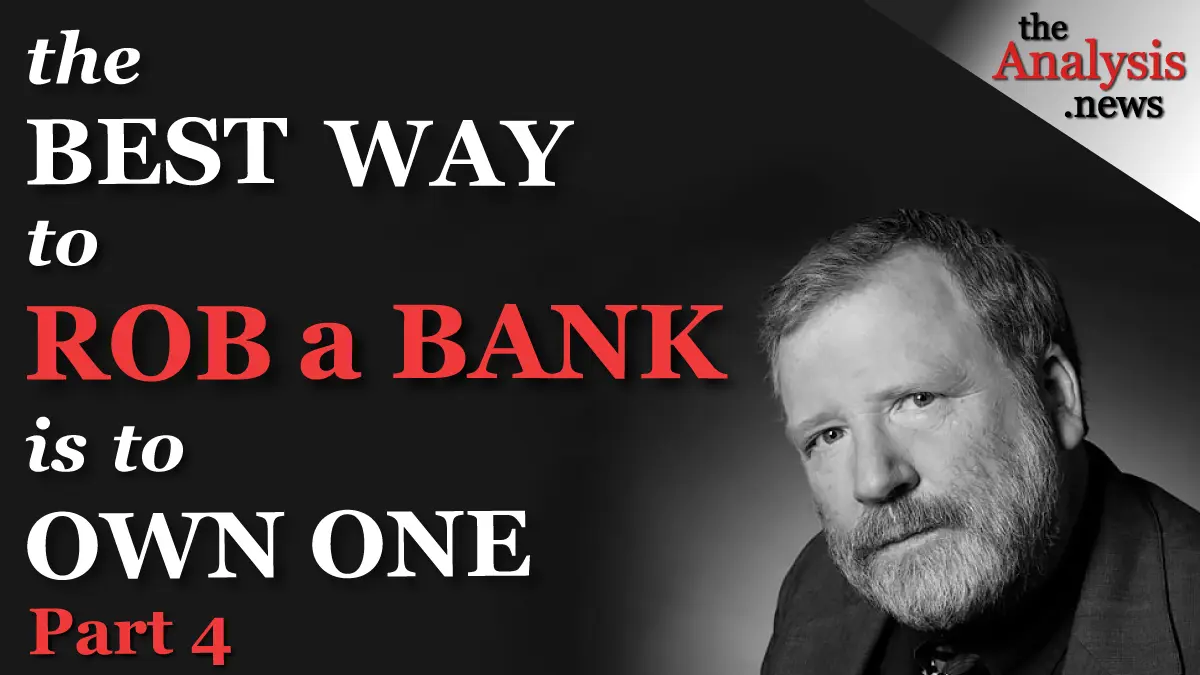

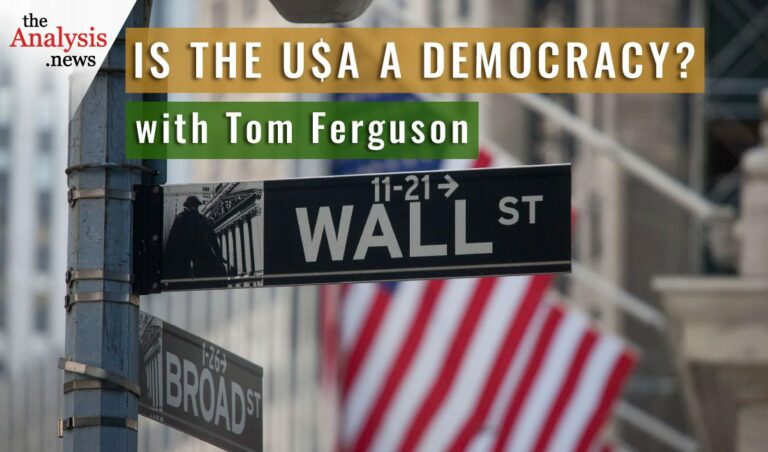

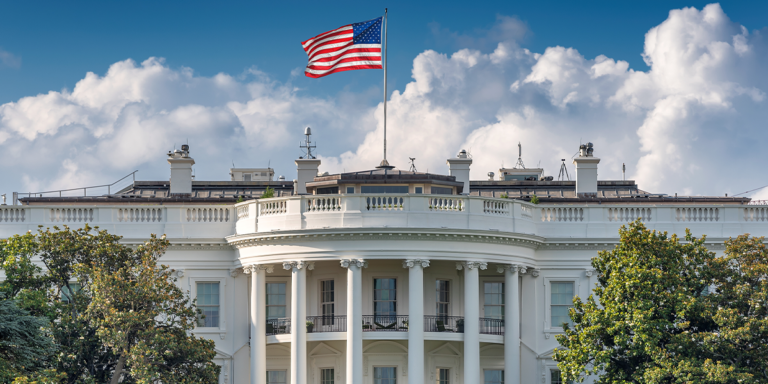
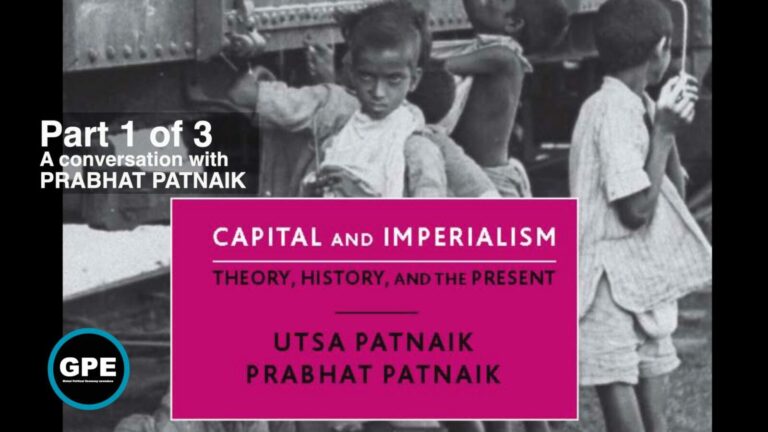
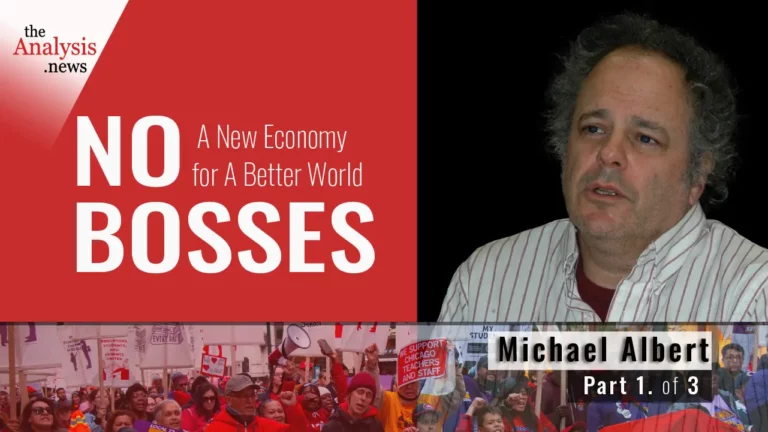
I knew Bill Black. He was a friend. He got it right, when so many, many others did not. I was chairman of the FHLBB. He was the right man, at the right time, for me. I have not heard from him in a long time. He was a hero, and an inspiration to me. And, he still is.
Edwin J Gray
Excellent interview laying out one dimension of the fleecing of Americans.
Of course out sourcing, homes becoming ATM, credit cards for everyone, the Financial Modernization Act….all of these and more: contributed to the Great Recession of 2008.
With 911, the answer from Bush was: Go shopping. Americans were considered only consumers (still are). Even now, the Fed refuses to report honestly the degree of inflation.
It now uses the same device to solve the Great Recession: Print money. Throw money at the problem. Intelligence?
No, greed supplants intelligence. Now that greed brings us to the brink of war and economic and ecological collapse.
The best way to rob a nation is to create a Federal Reserve Bank and give it the powers it has had since 1913.
The Fed and the major US banks loaned the British and the French the means of continuing WW1 from August, 1918 until November, 1918. Our banks made the Anglo-French pay back in gold. They, in turn, drained German productivity to accomplish that. Adolph Hitler rose to power as a result, and soon the world was off to WW2.
The best way to start wars is to put government in the hands of the banks.